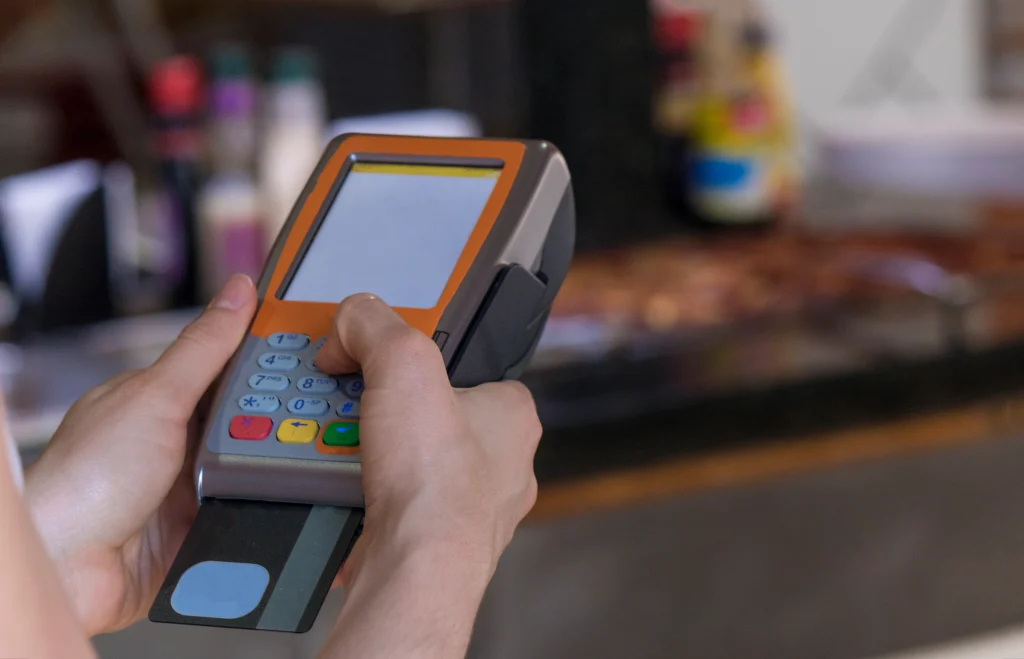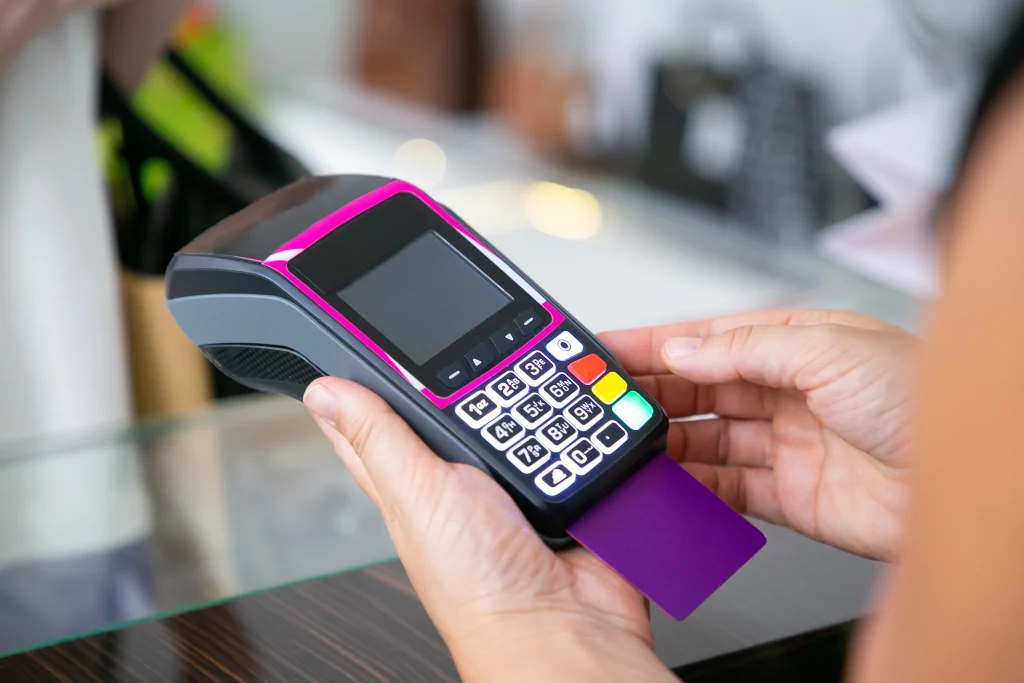Back in 1973, IBM launched the first Point of Sale (POS) system. What started as a simple checkout tool has grown into the heartbeat of businesses big and small.
A POS is more than just a machine; it’s the place where sales happen, stock is tracked, and customers feel taken care of. Modern systems even handle reporting, staff management, and customer data. Still, many business owners wonder: do I need point of sale, or can I manage without it? That’s where this guide comes in — to break it down simply and help you decide with confidence.
Let’s begin without any further ado.
POS and its Importance for Businesses in 2025
First question first, what is your business all about? Since POS systems provide a wide variety of features, it is important to first separate your business in a critical order so you can see whether you need a POS or not.
| Category | Examples of Businesses | POS Need | Why |
| Retail | Clothing, electronics, supermarkets, bookstores | Essential | High sales volume, inventory tracking, fast checkout |
| Food & Beverage | Restaurants, cafés, bars, bakeries, food trucks | Essential | Order management, table service, tips, multiple payment options |
| Hospitality | Hotels, motels, resorts | Essential | Room charges, multiple service points, guest billing |
| Entertainment | Theaters, events, amusement parks, museums | Essential | Ticketing, concessions, memberships, high transaction speed |
| Personal Services | Salons, spas, fitness studios, repair shops | Essential | Appointment + payment management, memberships, packages |
| Mobile Sales | Market stalls, pop-ups, delivery services | Essential | Portable payments, low setup, quick checkout |
| B2B Companies | Wholesalers, suppliers, manufacturers | Optional | Usually invoice clients, don’t need in-store checkout |
| Freelancers | Designers, consultants, tutors | Optional | Payments typically via invoices or transfers |
| Professional Firms | Law firms, accountants, agencies | Optional | Services billed, not point-of-sale based |
With this table by your side, you can first judge whether your business needs a POS or you are doing better even without it. While you may not be able to run your entire retail business better, POS systems can easily raise the profile of your entire business.

Advanced POS systems allow you to save time, boost the engagement of customers, and make smarter decisions. With that, you get higher productivity and more satisfied consumers in your business. Thus, win-win for both sides. So, if you ever feel, why do I need a POS system, these are the few anchors you can hold on to!
Advantages of the POS System You Must Know
When it comes to choosing POS systems, a lot of businesses first want to know the benefits that come in packed with them. To ease you with that, here is a list of benefits a POS system brings to your business.
1. Fast & Convenient
POS systems can speed up the checkout process of your business while making it completely convenient for your team and customers as well. While it improves the accuracy, it also reduces human error, which gives you an edge in being efficient. Also, POS systems accept online orders, contactless payment, and mobile wallets as well.
2. Boosted Customer Loyalty
Built-in royalty programs have gained massive success among customers, and nowadays, so many POS systems have built-in loyalty programs, which can help you engage and retain existing customers of your business. Integrated with your POS software, they can take the form of cash back offers, reward points, coupons, and deals.
3. Fine Inventory Management
If the item is out of stock and your inventory is not updated, it can backfire. But with a smart POS system, you can track your inventory in real time and determine which item needs to be restocked and pulled back from the current options. That way, having an accurate and updated inventory will help you stay transparent with your customers.
4. More Upsell and Cross-sell Options
With so many modern POS systems, it has become easier for businesses and their employees to make a profit from each opportunity. Systems can now suggest complementary or newly launched items to customers directly during checkout and can be used further to collect information for future promotions.
5. Customer Privacy & Security
Advanced POS systems can help keep the customers’ personal and financial data secure so it doesn’t fall into the wrong hands or scammers. With comprehensive data encryption and strict industry standards for financial and sensitive data, you can put up access controls on POS systems and limit the risk.
PRO TIP:
With this list of benefits, you can definitely answer your struggle about do I need point of sale system for my business or not.
Disadvantages of the POS System You Should Know About
While the POS system looks all gold and bright from afar, there are a few downsides to this system as well. Let’s have a look at them.

1. Expensive Software Upgrades
POS software market value is projected to reach $19 billion by 2028. These systems incur additional charges, and their upgrades are enormously expensive. Every time you go for an update, it may require you to pay new operational licenses or system credibility. With that amount being stacked, POS becomes expensive for a lot of businesses.
2. Less Convenience
The more advanced POS systems are getting, the less convenient they are becoming for the customers. A lot of businesses have to keep compatible hardware that can connect physical terminals to the Internet, and this creates glitches in the systems. This is where hardware becomes necessary, along with POS systems to access inventory counts, reports, and sales.
3. Issues Caused by Hardware
Another issue reported in POS systems is the hardware running out of proper functionalities, and repairing it could be difficult and expensive. When problems with hardware show up, vendors should contact the manufacturer to troubleshoot the problem; however, it may require a costly and time-consuming visit from a technician.
4. Learning Curve Dependency
With the advanced POS systems comes the immediate lack of a learning curve. Employees need proper training from the POS technicians and experts on how the POS works. This can be immensely time-consuming and challenging for those who are not from a tech background or who struggle with using technological devices.
5. Cybersecurity Risks
POS systems are never free of cyber threats and attacks. They are easily vulnerable to hacking and data breaches if not properly secured. Thus, the risk of theft and misuse of customers’ sensitive data is immense.
The Future of POS Systems
- With 2025 heading to its end, we are witnessing the era of technology that is already booming. And the POS system is just one brick from that wall. With 2026 and beyond, the trends of future POS may look more like the following;
- Cloud-based POS expansion
- Mobile and tablet dominance
- Omnichannel integration
- Contactless and mobile payments
- Built-in CRM
- Voice-enabled checkout
- Biometric authentication
- SaaS subscription pricing
- Multi-currency compliance
These are the few POS trends that may reshape its future sooner or later in 2026. Till then, Mobile POS vs Traditional POS will continue to drive changes in the POS industry.
The Bottom Line
So, if you are a business owner and already struggling with the question “why do I need a POS system”, this quick guide may help you make a decision. While going through this list, make a small checklist by your side; it will help you decide way better whether your business needs a POS system or not.
Also, if you need to have a word with a POS expert, you may give us a line at <email> and our customer support will contact you within 24 to 48 business hours.
Frequently Asked Questions
1. What is a POS system?
A POS system is a combination of hardware and software that enables a business to process customer transactions, manage sales, and analyse data in one central location.
2. Should I get a POS system for your business?
If you want to streamline sales, manage inventory, accept multiple payment methods, and enhance operational efficiency, you should get a POS system!
3. Is a POS system for business expensive?
The cost of POS systems varies widely as per their features, connected hardware, and the size of business.
4. Can you provide me with a custom-made POS?
Yes, Swyft POS can look into your request for a customized POS. You may drop us a line at <email> and our team will contact you within a business day with a prompt solution.
5. What are the most popular POS in 2025?
The most popular POS systems in 2025 are as follows;
- Square POS
- Shopify POS
- Toast POS
- Lightspeed POS
- TouchBistro POS
- Clover POS





